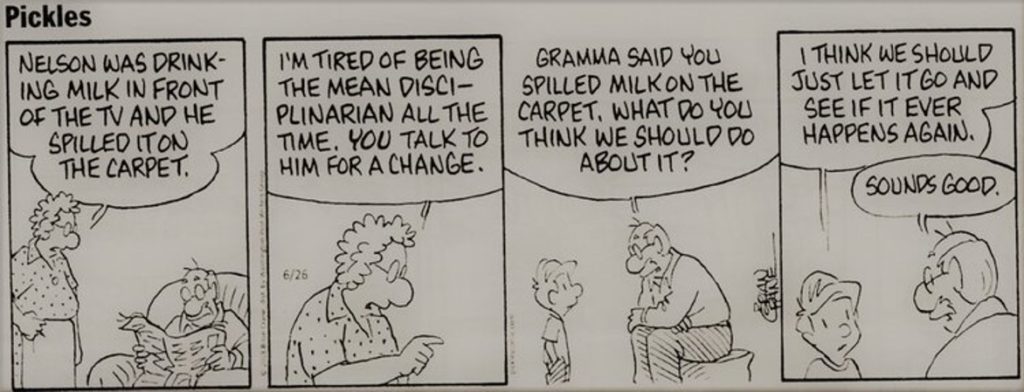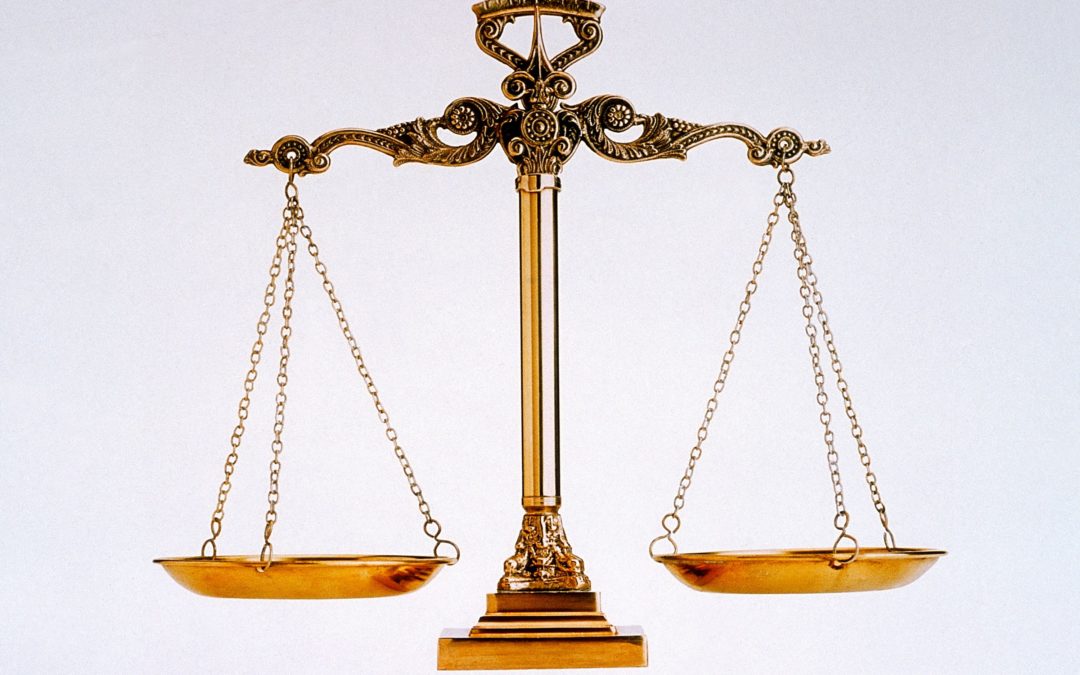
My Musings: Consider the modern-day fable concerning what “itching ears” want to hear about God and Christ.
“And God said, “have you eaten from the tree that I commanded you not to eat from? What do you think we should do about it?” And the man and the woman both said, “we think that we should just let it go and see if it ever happens again.” And God said, “sounds good.” (Genesis 3:11, PMV* 2020).
*Post-Modern Version
Once upon a time, (let’s call it the Old Testament days), God was faced with a people who habitually disobeyed Him. Time and again they were punished by God, repented of their wrong-doing (let’s not call it sin — that’s offensive to us) for a time, but eventually returned to their old ways. And the cycle began anew. After centuries of this predictable pattern, God the Father grew tired of always being the “mean” disciplinarian. So, He sent His Son Jesus into the world. “You talk to them for a change,” was His Father’s parting instructions. After three years of “talking to them” (let’s call it the New Testament days), Jesus asked this question of the crowds — “What do you think we should do about it?” As expected, the crowd replied, “We think you should just let us go and see if it ever happens again.” Then they crucified Him. And they all lived happily ever after doing their own thing without fear of any consequences. Sound good?
How far-fetched do you think this fable is? Clearly it misrepresents God and Jesus, but what about the people? We don’t like to think about consequences, punishment or least of all God’s wrath. That was the God of the Old Testament, right. That’s merely allegory, that’s the real fable, isn’t it? Our God is a loving God (that’s true). Our God is a God of grace (also true). We are living in New Testament days (still with you). There is no longer a God of wrath if there ever was one (and you were doing so well).
“Be sure of this: The wicked [those who reject Christ] will not go unpunished, but those who are righteous [those who accept Christ] will go free. The desire of the righteous ends only in good, but the hope of the wicked only in wrath.” (Proverbs 11:21–23, NIV 1984).
What these verses depict are mercy (for “the truly righteous man”) and justice (for “the wicked”). There is no injustice. It is not unjust for God to punish the wicked. It would be unjust if He did not. But, as we know, He is a just God. And even though “there is no one righteous, not even one; there is no one who understands, no one who seeks God. All have turned away, they have together become worthless; there is no one who does good, not even one” (Romans 3:9–12, NIV 1984), the “truly righteous[Born Again]…attains life [and] will go free.”
I don’t like to think about God’s wrath either. Certainly not hell. But ignoring the truth doesn’t make it go away. God certainly did not ignore it. He could not ignore it because He is also a just and righteous God (would we want one who wasn’t). So, He sent His Son to die on that cross for our sins (oops I said that word) so He could make it go away for us. He shifted the wrath, the consequences, the punishment onto Jesus. This was the only solution that could satisfy both His loving grace and His just and righteous wrath. That might sound like a fable, but it is not. It’s a gift. What’s the “fine print” you ask? The gift is available only for those who choose to accept it, those who are Born Again. If we reject or ignore (same as rejecting) the gift, we accept the consequences. Consequences that are so easily avoidable.
“What then shall we say? Is God unjust? Not at all! For he says to Moses,’ I will have mercy on whom I have mercy, and I will have compassion on whom I have compassion.’ It does not, therefore, depend on man’s desire or effort, but on God’s mercy.” (Romans 9:14–16, NIV 1984). While this may be hard for us to fully grasp (for who can fully comprehend God’s mercy and grace?), the “truly righteous” are those who have placed their faith in Jesus Christ, and in so doing receive the Father’s mercy. Not because of their own “desire or effort.” It is not “by works.”
Some will still claim that God is not being fair. But do we really want fair? It would be fair if God did not let anyone go unpunished. He was under no obligation to send His Son to die for the sins of anyone. But He did. So, for Him to “have mercy on whom [He has] mercy,” i.e., only those who “believe and receive,” is mercy not injustice. And for Him to not let the wicked go unpunished, is just. After all, they are rejecting a very costly ransom price.
Wrath and punishment are not what God wants. “‘As surely as I live,’ declares the Sovereign LORD, I take no pleasure in the death of the wicked, but rather that they turn from their ways and live. Turn! Turn from your evil ways! Why will you die, O [sinful man]?’” (Ezekiel 33:11, NIV 1984). We do not have to.
My Advice – The is a lot of pent up wrath in mankind today that is boiling over. A lot of talk about justice and injustice. When it comes to our standing before our God, believe me when I say, we want mercy, not justice. For “surely we also will be punished if we ignore this great salvation.” (Hebrews 2:3, NIV 1984). “Yet to all who received him, to those who believed in his name, he gave the right to become children of God— children born not of natural descent, nor of human decision or a husband’s will, but born of God.” (John 1:12–13, NIV 1984). That is — Born Again!
There is another fable that is extremely popular today. The fable is that there are many paths to God. If there were, why did Christ have to die? If there are, Christ cannot be one of them. Choose the only right path. All other “paths” are dead ends.
“For if the message spoken by angels was binding, and every violation and disobedience received its just punishment, how shall we escape if we ignore such a great salvation?” (Hebrews 2:2–3, NIV 1984).
Discussion Questions
Why do you think the truth of the Gospel does not “sound good” to people today? Why are they turning to the gospel of their “itching ears,” which is really “no Gospel at all?
What kind of God would the LORD be if He did what sounded good to us?
In your own words, why is God not being unjust when He has mercy on some, but not on others?
Is this (His punishment of evil) a valid criticism of God? Why or why not?
Why do we not want God to be “fair?”
Why is God not being unfair when He provides only one Way to obtain mercy?
Despite all the talk about justice and injustice today, why does mankind not “get it?”
In the end, does mankind really want justice? Why or why not?
Remember: As Christ’s ambassadors, our job is not to “accuse, criticize or abuse” those in the world who do not get it. That would not be helpful. That would not be “appealing.” Rather “he has committed to us the message of reconciliation. We are therefore Christ’s ambassadors, as though God were making his appeal through us.” (2 Corinthians 5:19-20, NIV 1984).


